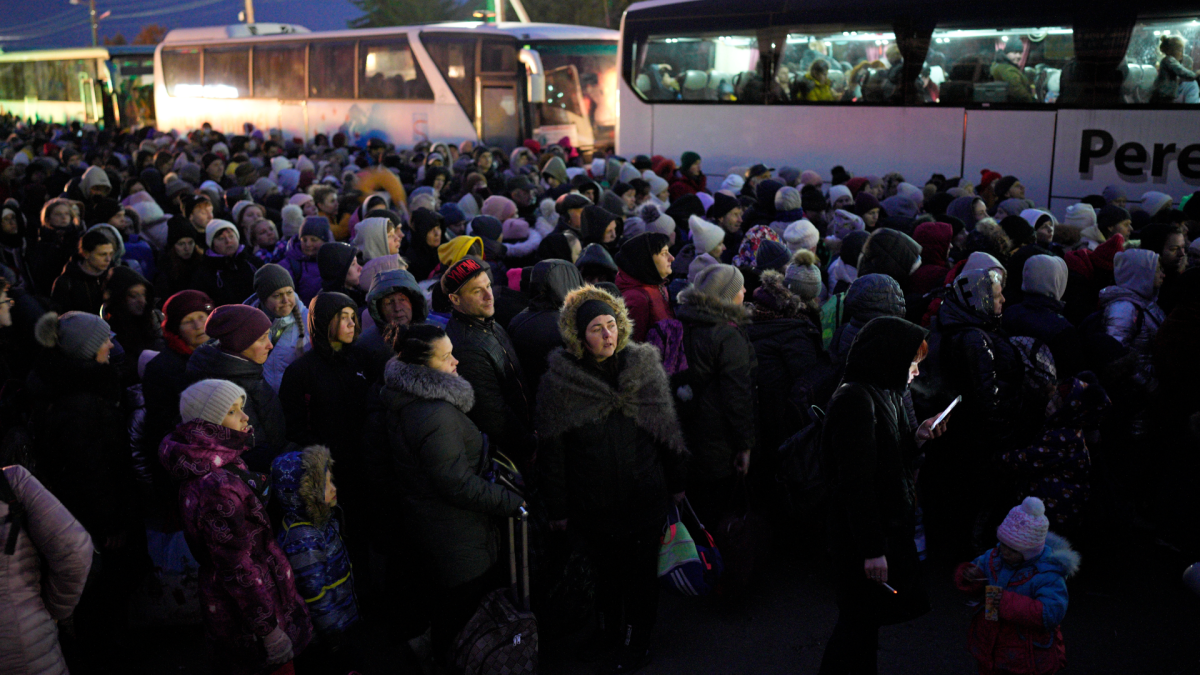A manager with the Hamilton chapter of the YMCA says the organization doesn’t know yet when or how many refugees will be resettled in Hamilton as part of a mass exodus from Ukraine amid the war with Russia.

Lily Lumsden, Senior Regional Manager, Employment & Immigrant Services, says it’s expected they will be receiving a “significant” number through different pathways set up by Immigration, Refugees and Citizenship Canada (IRCC).
“With the Syrian refugees, we resettled over a thousand in a fairly short period of time. So I would say that our community is definitely ready for for that type of number, but we haven’t yet heard,” Lumsden told 900 CHML’s Good Morning Hamilton.
Over a million and a half people — more than three per cent of Ukraine’s population — have fled the country in the last two weeks week since Russia launched its invasion, according to the United Nations.
Canada is set to take on some of those looking for a place via a program revealed last week to make it easier for Ukrainians to come over.
Ukrainians fleeing will be allowed to come to Canada temporarily for a period of two years.
Prime Minister Justin Trudeau said the Canada-Ukraine Authorization for Emergency Travel will temporarily eliminate “many of the normal visa requirements” for Ukrainian refugees.
IRCC is aiming to have that pathway open within’ two weeks.
Premier Doug Ford has already said he wants to fast-track potential Ukrainian refugees to Ontario with preparing jobs and settlement services prior to arriving in the province.
Ontario has pledged $300,000 in humanitarian aid to support Ukrainians in need. The Canada-Ukraine Foundation is to distribute the funds.
Lumsden says housing will be the first priority for the new settlers before connecting them with jobs, mental health supports, and finding schools for children.
“We actually have 14 settlement workers that work directly in our local school boards to be able to help the children and the families with the the process of adjusting to a new school system,” said Lumsden.
She says typically not all refugees integrate into the general community at the same speed with some requiring the YMCA’s support for years before adapting to their new surroundings.
In 2015, Canada accepted 40,000 refugees from the war-torn Syria. Close to 2,000 of those made it to the Hamilton metropolitan area through government or private sponsorships.
“With Syrian refugees that came in a number of years ago, we are still working with families and still helping them adjust to the Canadian way of life, but also really seeing the effects of the trauma of war, ” according to Lumsden.
Last week, the Canadian Council for Refugees said those who resided in Ukraine are in an extremely vulnerable situation now.
“Their situation is even more precarious,” said executive director Janet Dench. “We’re certainly calling on the government to pay particular attention to to them,” especially as early reports indicated some refugees and temporary residents in Ukraine experienced racism at the border and had extra difficulty leaving the country.
The United Nations Refugee Agency, UNHCR, said 1.5 million people have fled the country so far.
Last week, European Union ministers voted unanimously to activate The Temporary Protection Directive for the first time since it was created in 2001.
UNHCR said the directive means member states will provide immediate protection for Ukrainians and third country nationals with refugee or permanent residence status in Ukraine.
The senior project manager for Hamilton Immigration Partnership Council says its “early days” and so far only knows that the federal government has informed the city processes are in place for the receiving of refugees in Canada.
“The good news is in Hamilton we’ve done this before, many times,” Sarah Wayland told Global News.
“We have … the service infrastructure in place to help this be a successful experience for people who are coming for a trauma situation.”
— With files from Eric Stober and the Canadian Press








Comments